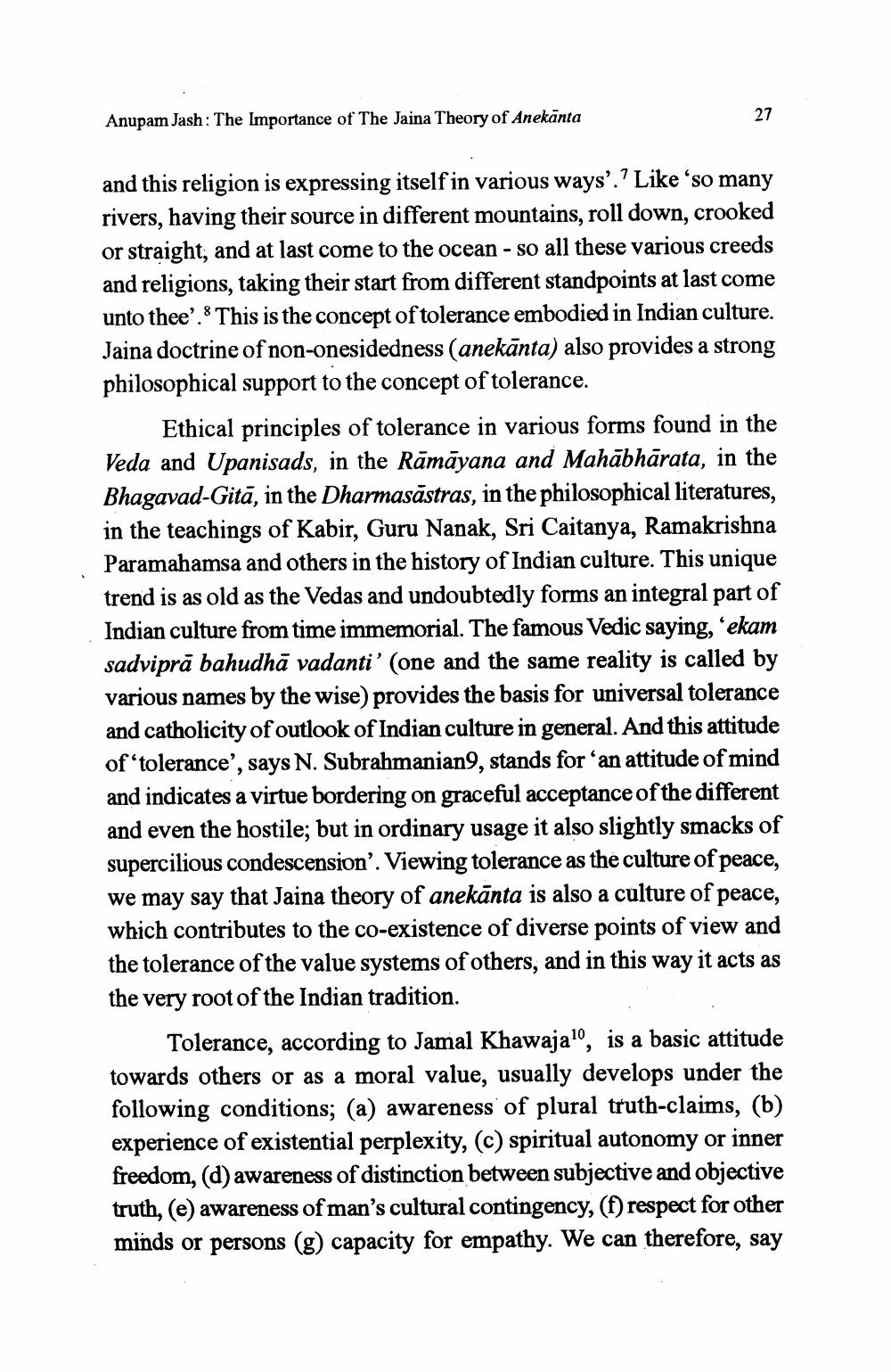________________
Anupam Jash: The Importance of The Jaina Theory of Anekanta
and this religion is expressing itself in various ways’.? Like ‘so many rivers, having their source in different mountains, roll down, crooked or straight, and at last come to the ocean - so all these various creeds and religions, taking their start from different standpoints at last come unto thee'. This is the concept of tolerance embodied in Indian culture. Jaina doctrine of non-onesidedness (anekānta) also provides a strong philosophical support to the concept of tolerance.
Ethical principles of tolerance in various forms found in the Veda and Upanisads, in the Rāmāyana and Mahābhārata, in the Bhagavad-Gitā, in the Dharmasastras, in the philosophical literatures, in the teachings of Kabir, Guru Nanak, Sri Caitanya, Ramakrishna Paramahamsa and others in the history of Indian culture. This unique trend is as old as the Vedas and undoubtedly forms an integral part of Indian culture from time immemorial. The famous Vedic saying, “ekam sadviprā bahudhā vadanti' (one and the same reality is called by various names by the wise) provides the basis for universal tolerance and catholicity of outlook of Indian culture in general. And this attitude of 'tolerance', says N. Subrahmanian9, stands for an attitude of mind and indicates a virtue bordering on graceful acceptance of the different and even the hostile; but in ordinary usage it also slightly smacks of supercilious condescension'. Viewing tolerance as the culture of peace, we may say that Jaina theory of anekānta is also a culture of peace, which contributes to the co-existence of diverse points of view and the tolerance of the value systems of others, and in this way it acts as the very root of the Indian tradition.
Tolerance, according to Jamal Khawaja, is a basic attitude towards others or as a moral value, usually develops under the following conditions; (a) awareness of plural truth-claims, (b) experience of existential perplexity, (c) spiritual autonomy or inner freedom, (d) awareness of distinction between subjective and objective truth, (e) awareness of man's cultural contingency, (f) respect for other minds or persons (g) capacity for empathy. We can therefore, say




